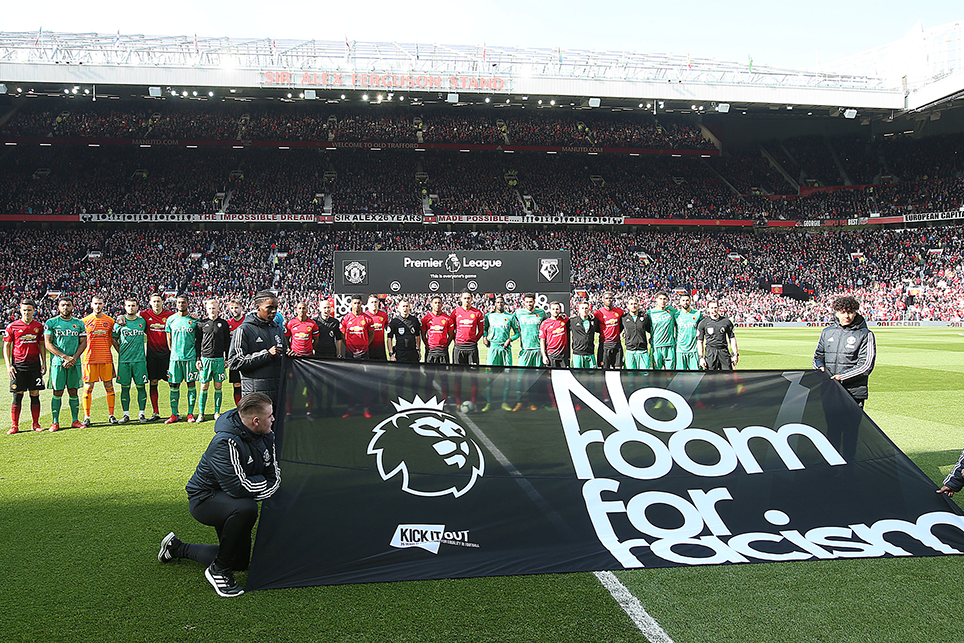![]()
A nation’s heart and pride can be found in its athletes, who represent their city, country and team in competition across the nation and the globe. Athletes, using their platform, also hold their fans and nations accountable as they stand against xenophobia and racism.
While many fans are familiar with Colin Kaepernick, former quarterback for the San Francisco 49ers, protesting against racial injustice by kneeling during the national anthem in 2016, they may not know that similar protests started in 1996.
According to The Undefeated, Mahmoud Abdul-Rauf, who, at the time, was a guard for the Denver Nuggets, chose to sit during the national anthem because he viewed the American flag “as a symbol of oppression and racism.” The NBA suspended Abdul-Rauf for one game and he paid a fine of almost $32,000. He was later traded to the Sacramento Kings, where his playing time dropped immensely. He was out of the league by 2001.
As the murders of Black men and women by police have entered the forefront of conversation in 2020, athletes have used their platform to speak out for justice and against racism.
Last August, the NBA was at the center of a historic player boycott in response to the shooting of Jacob Blake, but it was players in the WNBA who led the way for the NBA’s boycott. They were among the first “to wear warm-up shirts with social justice messaging affirming Black Lives Matter, hold media blackouts and even kneel during the national anthem,” according to The Washington Post.
On an international scale, players and leagues have also responded to racism and xenophobia. In September, the French Ligue 1 launched an investigation after Neymar, forward for Paris Saint-Germain, argued that he was subject to racist abuse from Marseille center back Alvaro Gonzalez during a match, according to ESPN. Neymar made a statement on Sept. 14 via Instagram, saying, “In our sport, aggressions, insults, swearing, are part of the game … But racism and intolerance are unacceptable.”
During the 2019-2020 season, there was a 42% increase in reports of discrimination, according to Kick It Out, an equality and inclusion organization for English soccer. Kick It Out supported “players’ wishes to have ‘Black Lives Matter’ on their shirts for the remainder of the restarted 2019/20 season [and will back] players who ‘take a knee’ before or during matches,” according to the Premier League website.
As a soccer fan, H.G. Park, senior intercultural studies major, has witnessed this increase in racism and xenophobia. Although Park agrees with campaigns like Kick It Out, he is wary of their effectiveness. “It’s not working for sure,” Park said. “Having the fans against it is one thing, but when players are racially abusing each other … that’s making them look like hypocrites.”
Park believes that athletes should use their status wisely because they are role models with a wide-reaching audience. “It’s silly when people say they should just focus on sports. They should, but at the same time, they are one of the few people who can openly play and talk,” Park said. “Soccer and basketball are super globalized now, and they have a platform.”
However, many disagree with athletes using their platform in this way. Zachary Faria, columnist for The Washington Examiner, critiqued protests in the U.S., writing, “The national anthem and the American flag were always … the most basic unifying symbols of being an American … If athletes don’t want to stop these protests, they shouldn’t be surprised when fans meet them with a chorus of boos.”
Although some individuals may personally disagree, they believe that others should have the right to protest. Even though Henry Marshall, freshman computer science major, says that he would not protest, he also agrees that they have the right. “As soon as we say you have to do something,” Marshall said, “it’s like, well, we shouldn’t have to do that because of freedom, right?”
Photo courtesy of the Premier League/ Matthew Peters
Posted by Catherine Nolte
